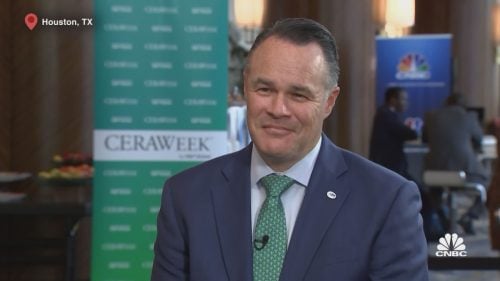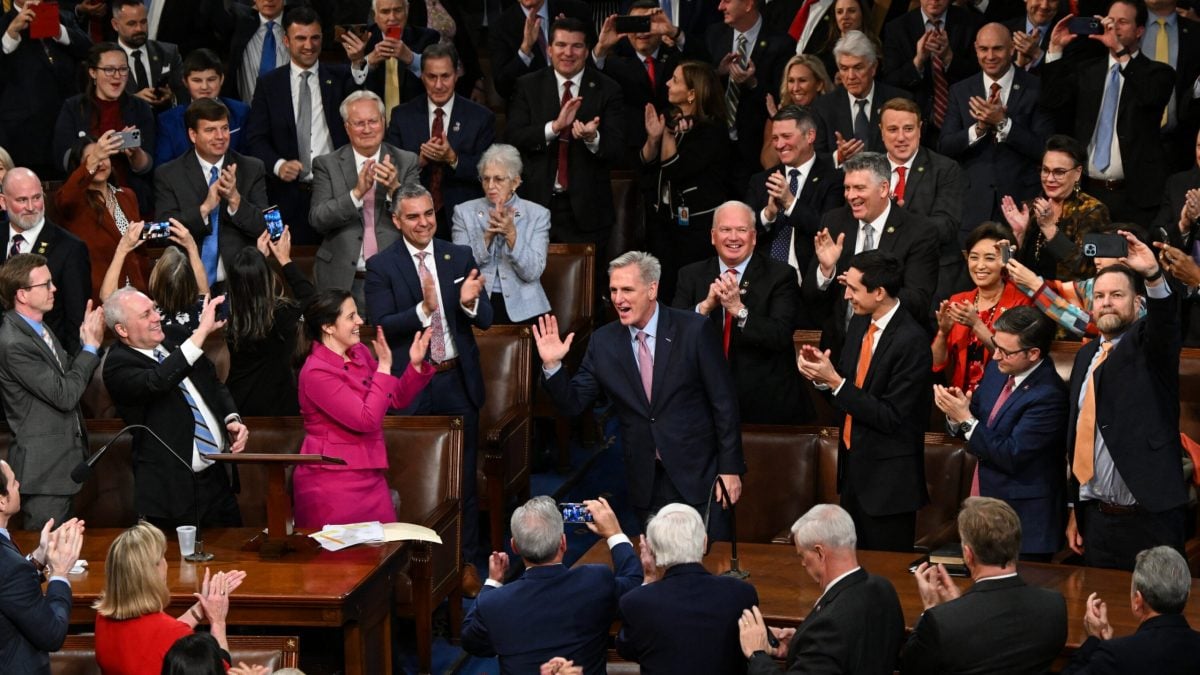The US oil sector hopes to resolve the complex bureaucratic permitting crisis that is hindering infrastructure work for new projects in the sector from launching during 2023, after years of unsuccessful pressure.
Lobbyists in the oil and gas sector in the United States are exerting strong pressure on members of the US Congress to pass a new law aimed at accelerating permits for new pipelines and other energy projects, according to the specialized energy platform.
American Petroleum Institute President Mike Summers said the split in control of the US Congress represents an opportunity to end the crippling sector permits crisis by passing the proposed legislation, according to Argus, a website that specializes in analyzing global energy markets.
Somoz admits that the issue will not be easy, but he is betting on a possible opportunity to build a serious national consensus on reforms that are very important to the US oil sector, in light of the bipartisan agreement on their importance.
vain pressure
Oil and gas companies have been lobbying Congress for years to revise sector permit laws with no response, due to the legislature’s previously non-passage structure.
American oil sector companies complain about the dominance of bureaucracy and the complexity of the process of obtaining the necessary permits to accelerate the infrastructure required for the growth of the energy sector in its various branches, which led to a delay in the launch and the loss of great opportunities for the sector.
This time, the sector companies are betting on the high rates of demand for oil and gas globally, which may facilitate the process of creating consensus between the two competing parties for seats in the US Congress.
Industry officials are also optimistic about the end of the procedures for forming congressional bodies after the recent midterm elections and the election of Republican Kevin McCarthy as a new president to succeed Nancy Pelosi, despite the state of tension that hindered voting in his favor more than once.
These indicators of global demand and the state of Congress give a glimmer of hope to the US oil sector about the possibility of passing this legislation, whose issuance has been delayed for years, due to the weak consensus between the two parties and the different global circumstances.
Permits take years
Oil and gas utility projects on public lands often require complex permits, which involve time-consuming bureaucracy.
Permits can take years for larger projects that are controversial with residents and environmental lobbyists in the United States, according to the specialist energy platform.
Pipeline, power transmission and port projects are often seen as some of the most important projects needed for the US oil and gas sector.
The Democratic Party threw a stone into the waters of the permit crisis over the past year, by introducing a bill (which did not pass) aimed at facilitating permits for electric transmission lines for renewable energy sources.
Aborting a bill in 2022
In addition, Democratic Senator Joe Manchin (D-WV) led a congressional campaign to pass the delayed $6.6 billion Mountain Valley natural gas pipeline project.
And the bill was thwarted during the past year 2022, due to poor obtaining the approval of the Republicans, which spread a state of frustration among the US oil sector companies that hope for a breakthrough in this situation between the two quarreling parties this year, amid supportive signals from President Joe Biden.
Republicans intend to submit a bill to solve the permit crisis according to their own vision, in exchange for another bill that will be presented by the Democrats.
It is scheduled that the House Energy and Commerce Committee will receive these proposals for examination and study, before presenting them for a final vote in the General Committee of Members of Congress.
This year, the committee is chaired by Democratic Representative Kathy McMorris Rogers from Washington state, and hopes that this crisis between the two parties will resolve during this year 2023.
Rogers raises concerns about the bill introduced by her colleague, Joe Manchin, last year, because it contains contentious issues related to the handling of domestic inputs for electricity transmission.
Rogers also praises the recognition of her colleagues in the Democratic Party of the need to amend the law to reach a consensus with the Republicans, to end the permit crisis necessary to revive the US oil and gas sector in light of the continuing repercussions of the Russian-Ukrainian war on the world.
The Senate may filibuster the Republicans
Some observers, on the other hand, expressed skepticism about the upcoming legislation’s passage in Congress, despite bipartisan agreement to end the permit crisis as soon as possible in principle.
The head of the American Petroleum Institute, Mike Summers, is concerned about the Republicans’ insistence on making major changes in environmental laws towards easing their conditions, in contrast to the Democrats, who attach more importance to the climate than their competitors.
If the Republicans succeed in passing these stipulations in Congress, they will face great difficulties in obtaining the confidence of the Senate, which is controlled by the rivals. Which “might send things back to square zero,” according to Mike Somers.
Introducing the expansion of federal lease contracts

Summers and other players in the US oil sector hope to see serious bipartisan negotiations to end the permit crisis this year, before entering the polarized atmosphere of the next presidential election in 2024.
The American Petroleum Institute is one of the largest and longest-standing lobbyists for oil and gas companies in the United States, and often proposes industry-related bills with representatives from both parties.
The institute plans to bring other issues to lawmakers this year, such as expanding oil and gas leases on federal lands and waters that US President Joe Biden has restricted with new environmental requirements as part of long-term climate policies.
The institute will also press for accelerating the marine leasing plan during the next 5 years from 2023-2028, according to what was monitored by the specialized energy platform.
It will also adopt accelerating the approval of liquefied gas export facilities, while changing the climate disclosure requirements for companies traded in the financial markets.
related topics..
Also read..

Leave a Reply